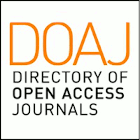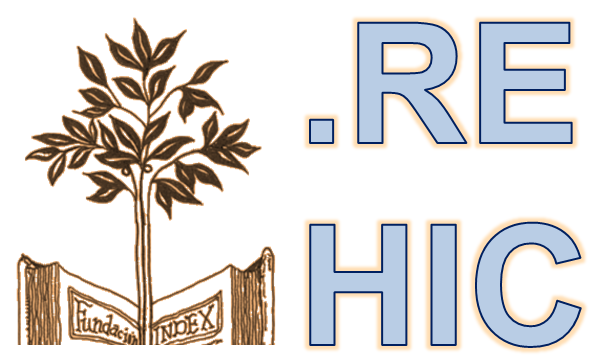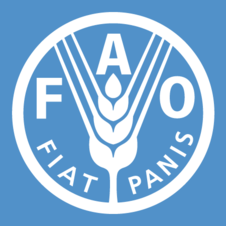The role of social support in adult women´s weight loss: A Literature review
DOI:
https://doi.org/10.29105/respyn18.3-4Palabras clave:
social support, weight loss, womenResumen
Abstract
Introduction: Excess body weight, is a worldwide health problem. Social support may play a central role during weight loss processes; however, this relationship has not been clearly established.
Objective: To determine the role of social support in adult women´s weight loss.
Methods: We conducted a systematic review searching four databases: PubMed, Ebsco Medline with full text, PsycINFO, and Web of Science; and including articles that were 1) related to at least one of the research question; 2) intervention studies aiming to evaluate the effectiveness of the familiar social support component in weight loss; 3) the population of the study was adult women between 18 and 65 years.
Results: Ten studies relating family social support to weight loss: only a few of them have shown an association between weight loss and family social support, and none of the studies found an association between family social support and BMI; involving family members in weight loss programs seems to have some positive effect but the results are mixed.
Limitations: Studies used different definitions and measures to evaluate family social support; some of them were excluded because they did not differentiate in their analysis between men and women.
Conclusions: It seems to be a positive effect between social support and weight loss in women, but more studies are necessary to draw solid conclusions.
Resumen:
Introducción: El exceso de peso corporal, es un problema de salud mundial. El apoyo social podría jugar un papel central durante los procesos de pérdida de peso, sin embargo, esta relación no está claramente establecida.
Objetivo: Determinar el papel del apoyo social en la pérdida de peso de las mujeres adultas.
Métodos: Realizamos una revisión sistemática buscando cuatro bases de datos: PubMed, Ebsco Medline con texto completo, PsycINFO y Web of Science; e incluyendo artículos que fueron 1) relacionados con al menos una de las preguntas de investigación; 2) estudios de intervención con el objetivo de evaluar la efectividad del componente de apoyo social familiar en la pérdida de peso; 3) la población del estudio eran mujeres adultas entre 18 y 65 años.
Resultados: Se encontraron diez estudios que relacionan el apoyo social familiar con la pérdida de peso: solo algunos de ellos demostraron una asociación entre la pérdida de peso y el apoyo social familiar, y ninguno encontró una asociación entre el apoyo social familiar y IMC; involucrar a miembros de la familia en programas de pérdida de peso parece tener algún efecto positivo pero los resultados fueron mixtos.
Limitaciones: los estudios utilizaron diferentes definiciones y medidas para evaluar el apoyo social familiar; algunos de ellos fueron excluidos porque no diferenciaron en su análisis entre hombres y mujeres.
Conclusiones: Parece existir un efecto positivo entre el apoyo social y la pérdida de peso en las mujeres, pero se necesitan más estudios para establecer conclusiones sólidas.
Descargas
Citas
Avenell, A. (Alison), Broom, J. I. (John), Brown, T. J. (Tamara), Poobalan, A. (Amudha), Aucott, L. S. (Lorna), Stearns, S. C. (Sally), … Grant, A. M. (Adrian). (2004). Systematic review of the long-term effects and economic consequences of treatments for obesity and implications for health improvement (Report). National Coordinating Centre for Health Technology Assessment. Retrieved from http://tees.openrepository.com/tees/handle/10149/58250 DOI: https://doi.org/10.3310/hta8210
Azarbad, L., & Gonder-Frederick, L. (2010). Obesity in Women, 33, 423–440. https://doi.org/10.1016/j.psc.2010.01.003 DOI: https://doi.org/10.1016/j.psc.2010.01.003
Black, D. R., Gleser, L. J., & Kooyers, K. J. (1990). A meta-analytic evaluation of couples weight-loss programs. Health Psychology, 9(3), 330–347. https://doi.org/10.1037/0278-6133.9.3.330 DOI: https://doi.org/10.1037/0278-6133.9.3.330
Center for Disease Control and Prevention. (2018). Adult Obesity Causes & Consequences | Overweight & Obesity | CDC. Retrieved November 20, 2018, from https://www.cdc.gov/obesity/adult/causes.html
Cousins, J. H., Rubovits, D. S., Dunn, J. K., Reeves, R. S., Ramirez, A. G., & Foreyt, J. P. (1992). Family versus individually oriented intervention for weight loss in Mexican American women. Public Health Reports (Washington, D.C.: 1974), 107(5), 549–555.
Economic Commission for Latin America and the Caribbean. (2018). Promoting equality: An interregional perspective (Text). Retrieved from https://www.cepal.org/en/publications/43677-promoting-equality-interregional-perspective
Fleming, P. J., & Agnew-Brune, C. (2015). Current Trends in the study of Gender Norms and Health Behaviors. Current Opinion in Psychology, 5, 72–77. https://doi.org/10.1016/j.copsyc.2015.05.001 DOI: https://doi.org/10.1016/j.copsyc.2015.05.001
Greaves, C. J., Sheppard, K. E., Abraham, C., Hardeman, W., Roden, M., Evans, P. H., … $author.lastName, $author firstName. (2011). Systematic review of reviews of intervention components associated with increased effectiveness in dietary and physical activity interventions. BMC Public Health, 11(1), 119. https://doi.org/10.1186/1471-2458-11-119 DOI: https://doi.org/10.1186/1471-2458-11-119
Jerome, G. J., Myers, V. H., Young, D. R., Matthews-Ewald, M. R., Coughlin, J. W., Wingo, B. C., … Brantley, P. J. (2015). Psychosocial predictors of weight loss by race and sex. Clinical Obesity, 5(6), 342–348. https://doi.org/10.1111/cob.12120 DOI: https://doi.org/10.1111/cob.12120
Johnson, E. R., Carson, T. L., Affuso, O., Hardy, C. M., & Baskin, M. L. (2014). Relationship between social support and body mass index among overweight and obese African American women in the rural deep South, 2011-2013. Preventing Chronic Disease, 11, E224. https://doi.org/10.5888/pcd11.140340 DOI: https://doi.org/10.5888/pcd11.140340
Khan, K. S., Kunz, R., Kleijnen, J., & Antes, G. (2003). Five steps to conducting a systematic review. Journal of the Royal Society of Medicine, 96(3), 118–121 DOI: https://doi.org/10.1177/014107680309600304
.
Kiernan, M., Moore, S. D., Schoffman, D. E., Lee, K., King, A. C., Taylor, C. B., … Perri, M. G. (2012a). Social support for healthy behaviors: scale psychometrics and prediction of weight loss among women in a behavioral program. Obesity (Silver Spring, Md.), 20(4), 756–764. https://doi.org/10.1038/oby.2011.293
Kiernan, M., Moore, S. D., Schoffman, D. E., Lee, K., King, A. C., Taylor, C. B., … Perri, M. G. (2012b). Social support for healthy behaviors: scale psychometrics and prediction of weight loss among women in a behavioral program. Obesity (Silver Spring, Md.), 20(4), 756–764. https://doi.org/10.1038/oby.2011.293 DOI: https://doi.org/10.1038/oby.2011.293
Kim, C., McEwen, L. N., Kieffer, E. C., Herman, W. H., & Piette, J. D. (2008). Self-efficacy, social support, and associations with physical activity and body mass index among women with histories of gestational diabetes mellitus. The Diabetes Educator, 34(4), 719–728. https://doi.org/10.1177/0145721708321005 DOI: https://doi.org/10.1177/0145721708321005
Kumanyika, S. K., Wadden, T. A., Shults, J., Fassbender, J. E., Brown, S. D., Bowman, M. A., … Wu, X. (2009). Trial of family and friend support for weight loss in African American adults. Archives of Internal Medicine, 169(19), 1795–1804. https://doi.org/10.1001/archinternmed.2009.337 DOI: https://doi.org/10.1001/archinternmed.2009.337
Kyryliuk, R., Baruth, M., & Wilcox, S. (2015). Predictors of Weight Loss for African-American Women in the Faith, Activity, and Nutrition (FAN) Study. Journal of Physical Activity & Health, 12(5), 659–665. https://doi.org/10.1123/jpah.2013-0220 DOI: https://doi.org/10.1123/jpah.2013-0220
Luppino, F. S., de Wit, L. M., Bouvy, P. F., Stijnen, T., Cuijpers, P., Penninx, B. W. J. H., & Zitman, F. G. (2010). Overweight, obesity, and depression: a systematic review and meta-analysis of longitudinal studies. Archives of General Psychiatry, 67(3), 220–229. https://doi.org/10.1001/archgenpsychiatry.2010.2 DOI: https://doi.org/10.1001/archgenpsychiatry.2010.2
Marquez, B., & Wing, R. R. (2013). Feasibility of Enlisting Social Network Members to Promote Weight Loss among Latinas. Journal of the Academy of Nutrition and Dietetics, 113(5), 680–687. https://doi.org/10.1016/j.jand.2013.01.020 DOI: https://doi.org/10.1016/j.jand.2013.01.020
Martinez-Jaikel, T., & Frongillo, E. (2016). Primary role of discouragement in co-existence of food insecurity and excess weight in Costa Rican women. Journal of Hunger and Environmental Nutrition. DOI: https://doi.org/10.1096/fasebj.29.1_supplement.251.6
McLean, N., Griffin, S., Toney, K., & Hardeman, W. (2003). Family involvement in weight control, weight maintenance and weight-loss interventions: a systematic review of randomised trials. International Journal of Obesity, 27(9), 987–1005. https://doi.org/10.1038/sj.ijo.0802383 DOI: https://doi.org/10.1038/sj.ijo.0802383
Montero, I., Aparicio, D., Gómez-Beneyto, M., Moreno-Küstner, B., Reneses, B., Usall, J., & Vázquez-Barquero, J. L. (2004). Género y salud mental en un mundo cambiante. Gaceta Sanitaria, 18, 175–181. DOI: https://doi.org/10.1157/13062523
National Institute of Diabetes and Digestive and Kidney Diseases (NIDDK). (2012). Overweight and Obesity Statistics. Retrieved November 29, 2015, from http://www.niddk.nih.gov/health-information/health-statistics/Pages/overweight-obesity-statistics.aspx
NHLBI Obesity Education Initiative Expert Panel. (1998). Clinical Guidelines on the Identification, Evaluation, and Treatment of Overweight and Obesity in Adults. National Heart, Lung, and Blood Institute.
Pinelli, N. R., Brown, M. B., Herman, W. H., & Jaber, L. A. (2011). Family support is associated with success in achieving weight loss in a group lifestyle intervention for diabetes prevention in Arab Americans. Ethnicity & Disease, 21(4), 480–484.
Sallis, J. F., Grossman, R. M., Pinski, R. B., Patterson, T. L., & Nader, P. R. (1987). The development of scales to measure social support for diet and exercise behaviors. Preventive Medicine, 16(6), 825–836. https://doi.org/10.1016/0091-7435(87)90022-3 DOI: https://doi.org/10.1016/0091-7435(87)90022-3
Secretaría de Salud. (2017). Encuesta Nacional de Salud y Nutrición de Medio Camino 2016. Retrieved November 20, 2018, from http://www.gob.mx/salud/documentos/encuesta-nacional-de-salud-y-nutricion-de-medio-camino-2016
Teixeira, P. J., Going, S. B., Houtkooper, L. B., Cussler, E. C., Martin, C. J., Metcalfe, L. L., … Lohman, T. G. (2002). Weight Loss Readiness in Middle-Aged Women: Psychosocial Predictors of Success for Behavioral Weight Reduction. Journal of Behavioral Medicine, 25(6), 499–523. https://doi.org/10.1023/A:1020687832448 DOI: https://doi.org/10.1023/A:1020687832448
Thoits, P. A. (2011). Mechanisms Linking Social Ties and Support to Physical and Mental Health. Journal of Health and Social Behavior, 52(2), 145–161. https://doi.org/10.1177/0022146510395592 DOI: https://doi.org/10.1177/0022146510395592
Uchino, B. N. (2009). Understanding the Links Between Social Support and Physical Health: A Life-Span Perspective With Emphasis on the Separability of Perceived and Received Support. Perspectives on Psychological Science, 4(3), 236–255. https://doi.org/10.1111/j.1745-6924.2009.01122.x DOI: https://doi.org/10.1111/j.1745-6924.2009.01122.x
Verheijden, M. W., Bakx, J. C., van Weel, C., Koelen, M. A., & van Staveren, W. A. (2005). Role of social support in lifestyle-focused weight management interventions. European Journal of Clinical Nutrition, 59 Suppl 1, S179-186. https://doi.org/10.1038/sj.ejcn.1602194 DOI: https://doi.org/10.1038/sj.ejcn.1602194
World Health Organization. (2015). WHO | Obesity and overweight. Retrieved May 13, 2015, from http://www.who.int/mediacentre/factsheets/fs311/en/
Descargas
Publicado
Cómo citar
Número
Sección
Licencia
Los derechos del trabajo pertenecen al autor o autores, sin embargo, al enviarlo a publicación en la Revista Salud Pública y Nutrición de la Facultad de Salud Pública y Nutrición de la Universidad Autónoma de Nuevo León, le otorgan el derecho para su primera publicación en medio electrónico, y posiblemente, en medio impreso a la Revista Salud Pública y Nutrición. La licencia que se utiliza es la de atribución de Creative Commons , que permite a terceros utilizar lo publicado siempre que se mencione la autoría del trabajo y a la primera publicación que es en la Revista Salud Pública y Nutrición. Asimismo, el o los autores tendrán en cuenta que no estará permitido enviar la publicación a ninguna otra revista, sin importar el formato. Los autores estarán en posibilidad de realizar otros acuerdos contractuales independientes y adicionales para la distribución no exclusiva de la versión del artículo publicado en la Revista Salud Pública y Nutrición (p. ej., repositorio institucional o publicación en un libro) siempre que indiquen claramente que el trabajo se publicó por primera vez en la Revista Salud Pública, Revista de la Facultad de Salud Pública y Nutrición de la Universidad Autónoma de Nuevo León.














